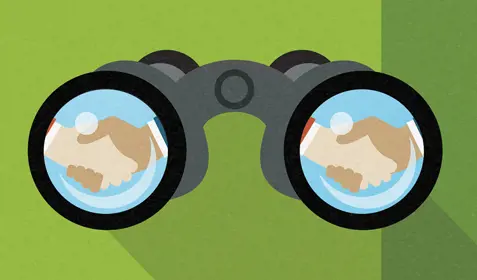A credit report serves as a record of your financial behavior, so it has a huge impact on your future prospects: it tracks your payment history, any bankruptcies, or whether you had any accounts sent to collection agencies. All this is to serve as a prediction of your future financial behavior; after all, as the saying goes, “past is precedent.”
And what better precedent than a complete, detailed list of your financial past? With a bad credit score, banks can charge you high interest rates on mortgages, loans (both personal and commercial), or more likely, reject you for a loan outright, forcing you to turn to unscrupulous payday lenders that charge insanely high interest.
What is a credit pull?
Yet a credit report (and your overall credit score) isn’t just based on whether you defaulted on a past loan, or have bad debt. Instead, a credit report also considers everyday factors, like credit checks, also known as pulls. Pulls are conducted by a number of entities, such as prospective lenders, credit card companies, and even potential landlords, as is often the case in cities with favorable tenant legislation.
Thankfully, depending on a number of key criteria, such as the identity of the requesting entity, credit reporting agencies class credit pulls into two types: hard and soft. Let’s take a look at how each type of pull affects your credit score, and further, what ramifications these have for your business.
Soft credit pulls
As the name suggests, soft credit pulls will not show up on your credit report or affect your credit score in the slightest. Different creditors or companies will use this to verify your credit score, or say, you use this when you’re check your own credit score.
Hard credit pulls
Hard pulls, on the other hand, can result from credit applications that you have made and will show up on your credit report, and those hard pulls can affect your credit score.
FICO, the industry-standard credit score, estimates that each credit inquiry will deduct less than 5 points (out of a range from 300-850).
Further, hard pulls do not stay on your credit report for very long, though the exact time varies by bureau. For instance, hard pulls only stay on Experian reports for 12 months, while Equifax documents all hard pulls within the past 24 months.
Still, there are some exceptions to classifying hard and soft pulls. Credit bureaus are familiar with the nature of their profession, and have designed algorithms to weed out hard pulls that arise from responsible behavior, such as shopping around and assessing different deals from various lenders, versus irresponsible behavior, such as binging on credit card applications in order to pay off existing debt.
For the most part, if you shop for a single type of loan product (like a commercial business loan from a series of SBA-approved lenders), hard pulls won’t necessarily affect your credit score if done in a specific timeframe (usually two weeks). Credit bureaus will realize that you’re shopping, simply by looking at the types of credit you’re applying for, and your timeframe.
For instance, if a credit bureau sees hard pulls originating from five different mortgage brokers within a span of two weeks, they’ll know that you’re likely comparing offers. In this case, many credit bureaus might even count these five pulls as a single, unified hard pull.
Beware the cumulative effect of hard pulls
Remember that no algorithm is foolproof, and it’s in your best interest to do two things: shop for credit quickly, given that you have a set time period to pick up the best deal, and keep an eye on your credit report so that you can dispute any errors. This is especially important if your credit bureau mistakenly listed a hard pull on your credit report.
We’re not saying that all hard pulls are bad. Instead, the total impact of many hard pulls is cumulative, and that can drag down your credit score. A lower credit score tells the bank that you’re a higher risk (which leads to higher interest rates). Ultimately, too many hard pulls will only hurt your chances of qualifying for an affordable loan.
Get more small business funding tips from Fundera!
Get more helpful tips with Fundera: Pros and Cons of Short Term Debt










